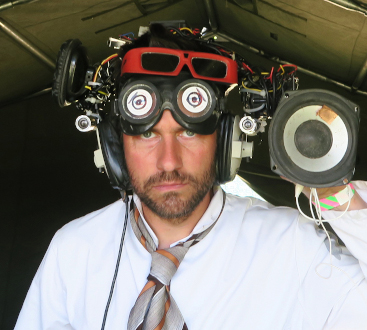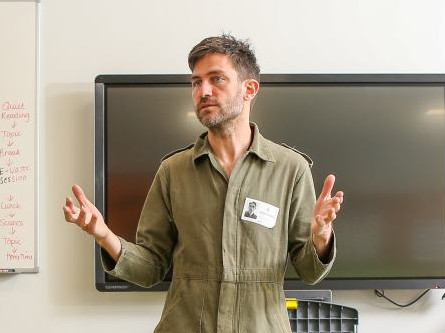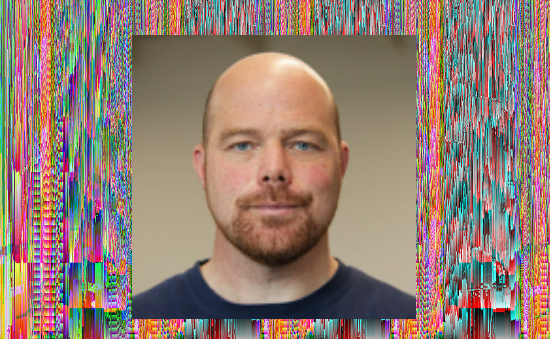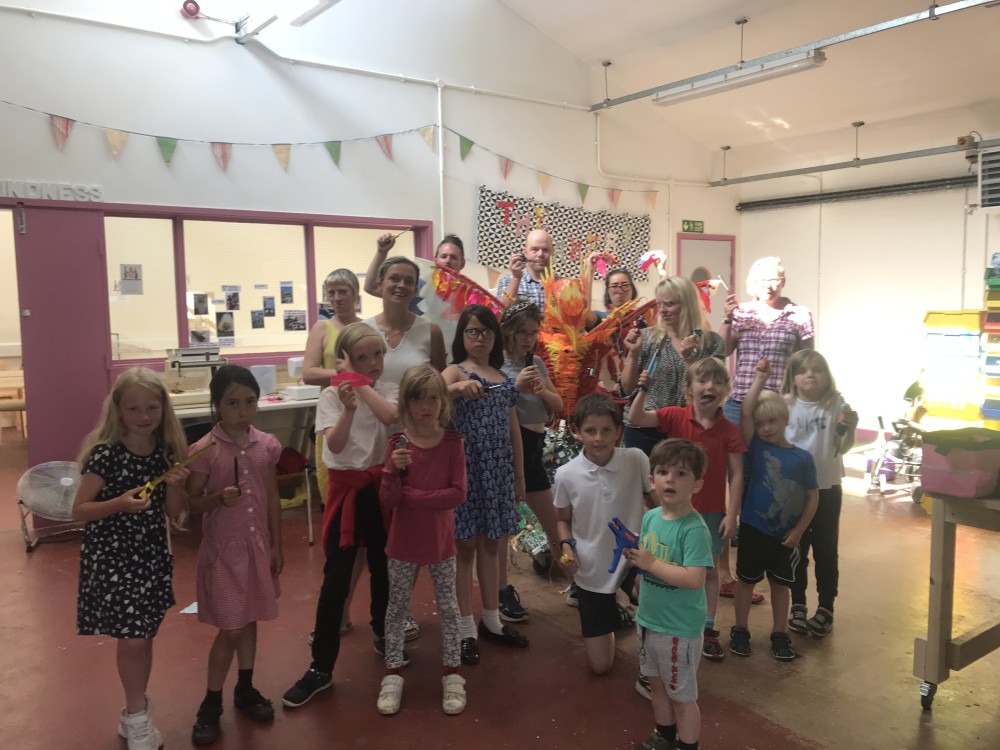Scavenger Activities
Scavenger Labs is a Community Interest Company working in the area of technology and education. It is the parent company for several ventures. As a company we now have a greater focus on documenting and disseminating our work to informal, community and home educators. We are seeking partnerships, and to provide services to other organisations to help achieve these goals.
Our most recent venture is called JAMM Labs, it’s a new venture to develop, document and disseminate our work. At JAMM Labs we develop educational materials for innovative and inclusive project based learning in the areas of science, coding and media production. Our ethos is driven by dedication to the themes of wellbeing, agency and sustainability.
Noisy Toys provides interactive installations, educational activities and stage shows for schools and events all over the country.
Some of our past projects include the setting up of Todmorden Makery and the #iwill social action project.
Scavenger Labs People and Places
We are based in Todmorden and Hebden Bridge with a public workshop and education space in Tod College called Todmorden Makery and a making workshop in the Big Tin Shed in Hebden Bridge.
The directors of Scavenger Labs are Stephen Summers and Mick Chesterman. We also work with a wide range of partners on projects and to deliver specialist workshops.
Stephen Summers


Stephen Summers is a qualified teacher with over fifteen years’ experience as a workshop leader and science communicator. In 2007 he started Noisy Toys as an educational service to combine aspects of science with music and creativity; learning through ‘hands-on’ activities. http://noisytoys.org
Steve is a musician, artist and performer who specialises in upcycled instruments. He has tested thousands of noses all over the country, butchered hundreds of computers and spawned many strange new instruments.
Mick Chesterman

My current passion is teaching various kinds of digital and physical making in interesting and inclusive ways. This involves digital game making and building arcade machines, physical computing using Microbits and Crumbles and anything to do with the web and media making. Whenever possible I’ll bring in elements of play, social justice and thinking in systems (technology doesn’t have to be techy). I am also a scavenger of technology, joining Steve Summers and many others in enjoying the pleasure and educational value of taking apart broken domestic electronics and other machines and re-using the parts in simple electronics projects.
My background in teaching is broad, involving over 25 years of community based education in languages, community development, media and technology. Since the very early days of the Web, I have been an advocate of using technology to help the aims of community and campaign groups. After doing a Computing MSc and PGCE, I currently work part time at Manchester Met as a tutor in the school of Childhood, Youth and Education Studies.
Our Ethos
Our works is driven by broad concerns of what’s happening in the world. We can’t fix everything but our work aims to address some key related themes.
- Wellbeing: As a baseline, let’s try to work together to be happy and healthy despite some of the challenges to mental and physical health we may face.
- Media and agency: This work relates to media literacy and beyond that a process of building agency within a community of creators.
- Family Learning: While we work with all ages, we are especially interested in working together with families.
- Waste reduction: as a subset of sustainability, we have found this as a great way to bring people together.
- Neurodiversity & Inclusion: For all of the areas above our educational approach which prioritises learner agency and inclusion suits varied needs related to neurodiversiy.
Inclusive education, Project based learning and Universal Design for Learning
UDL encourages teachers to create diverse ways to engage pupils, to represent the ideas being communicated and for students to express their own ideas. The key ideas emerged from the arena of designing computer aided instruction have been revised to into a framework that applies to diverse teaching and learning settings. According to the USA Center on Universal Design for Learning, “UDL provides a blueprint for creating instructional goals, methods, materials, and assessments that work for everyone—not a single, one-size-fits-all solution, but rather flexible approaches that can be customized and adjusted for individual needs.”
Universal design for learning is based around the principle that rather than designing separate activities and support for learners with different educational needs in the classroom - often labelled accommodations for disability - it is possible to embrace a set of guidelines that allow learners to choose a learning pathway through a designed learning experience that suits their individual abilities and learning strategies.
At Scavenger Labs we design our workshops to embrace the ideas of Universal Design for Learning. This involves lots of hands-on activities, projects and a variety of ways to share back learning and monitor understanding.
Objectives when Working with Young People & Families
- Empowerment and confidence as creators and users of technology for young people and their families
- Undertaking activities that act as tools to talk about technology and the environment
- Gaining practical skills in coding and basic electronics
Objectives when Working with Adults
- Transferable skills concerning the recycling and maintenance of electronic equipment
- Wider knowledge of the impact of digital technology to foster a growing community of informed, responsible users.
- Community building and wider objectives
- Foster a network of volunteer makers and breakers to deliver activities sustainably
- Build resources and educational resources for this community and wider online networks
- Promote innovation in use of technology focused on community approaches
